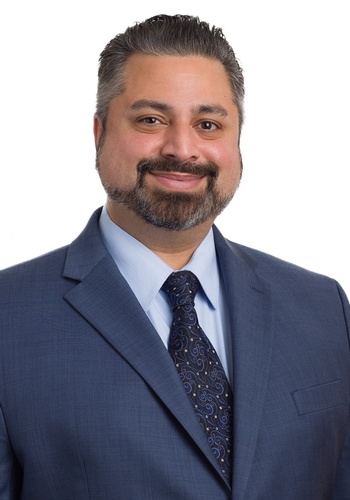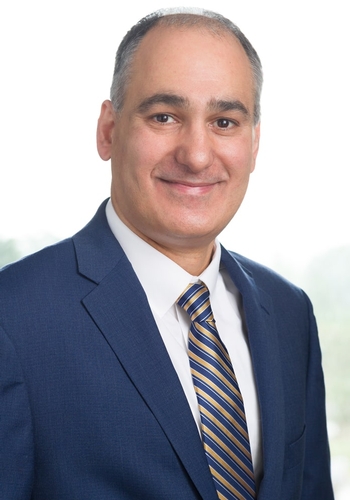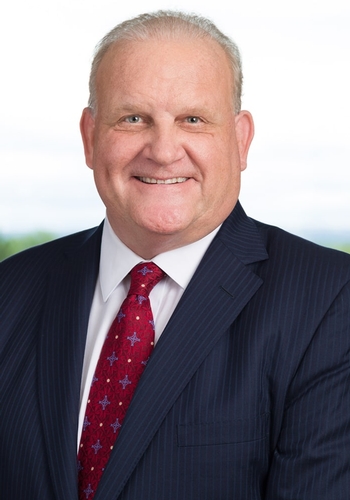Appellate Practice
During its long history, Schenck Price’s active and highly successful Appellate Practice Group has handled hundreds of appeals in both federal and state courts and various administrative tribunals at all levels of the U.S. federal and state court systems. The Group is often called in after a bad result to rescue a client at the appellate level.
The Appellate Practice Group’s lawyers frequently appeared in the Appellate Division and Supreme Court of New Jersey, various federal courts of appeal and administrative review courts. Given our vast experience, the firm can handle appeals involving all levels of complexity in a skillful and cost-effective manner.
Schenck Price's practitioners are fully integrated within the firm's Litigation Department, with experienced attorneys involved at all stages in the process, including initial strategic evaluation and motion practice. Sometimes we handle appeals in matters that were litigated at the trial level by other law firms. We frequently offer counsel and advice on legal issues before they reach the appellate level. While our objective is always to win each case, we do not lose sight of the need to address the root causes of legal difficulties.
Our attorneys assist clients with:
- Pretrial motion
- Preparation of jury instructions
- Presentation of motions and objections during trial
- Post-trial motions
- Pre-appellate evaluation and mediation of cases
- Corporate matters
- Commercial litigation
- Insurance coverage and defense
- Employment law
- Civil rights
- Construction law
- Insurance fraud
- Environmental litigation
- Personal injury
- Education
- Land use
- Product liability
-
Schenck Price Litigation Partner John Bowens is handling a significant and very unique dispute before the New Jersey Supreme Court concerning the New Jersey Constitution's provisions requiring the separation of church and state.
John represented the prevailing party, the County of Morris, at the trial level against a Wisconsin-based organization called the Freedom From Religion Foundation ("FFRF"), which objected to a county program that provided historic preservation grants to church buildings on the state and federal register of historic buildings.
Based upon John's argument, Judge Margaret Goodzeit, J.S.C. granted the County's motion for summary judgment, holding that the program did not violate the New Jersey Constitution. FFRF appealed the ruling to the New Jersey Appellate Division.
In recognition of the weighty issues at stake in the case, John utilized a seldom used, and rarely granted, motion to apply for direct consideration by the New Jersey Supreme Court. The Supreme Court accepted the arguments offered on behalf of Morris County and granted the application on June 2, 2017.
He v. Miller, 207 N.J. 230 (2011). This matter involves a plaintiff who was allegedly injured in an automobile accident caused by our client, defendant Mrs.Miller (“Miller”). After a three-day trial, the jury returned a total verdict of $1.71 million. The trial court granted defense’s post-trial motion for a new trial or, in the alternative remittitur, on the basis that the jury verdict was against the weight of the evidence and shocks the judicial conscience and remitted the award to $830,000. The Supreme Court upheld the trial court’s Order for Remittitur finding that the trial judge could rely upon his “feel of the case” and other jury verdicts in rendering his decision to remit a jury award. There is a “wide range of acceptable jury verdicts and to grant remittitur, the jury award must fall outside of this range. In determining what constitutes the “wide range of acceptable,” the trial judge may draw upon his or her past experience, his or her “feel of the case,” jury awards in trials over which he or she has presided and those comparable prior jury verdicts provided by the parties. In addition, the trial court may rely upon its “feel of the case.” The prior verdicts provided by the defense throughout the appeal process were found to be relevant as they “helped to fix the framework of what the ‘wide range of acceptable’ for the court to consider.” Moreover, the trial court’s “feel of the case” is equally as compelling in determining the “wide range of acceptable.” The trial court made a number of observations about the plaintiff made outside of the observations of the jury which supported his decision to remit the jury award including the manner in which plaintiff entered and left the courtroom. These “feel of the case” observations lend legitimate support to the trial court’s evaluation of a remittitur application. The matter has been remanded for a new trial on damages.
Abouzaid, et al. v. Mansard Gardens Associates, LLC, et al. 207 N.J. 67 (2011). This matter arises from an August 22, 2007 apartment fire. The fire resulted in alleged physical and emotional injuries to one or more minors, and alleged emotional injuries to the parents of the injured minors. GNY’s insured, Mansard Garden Associates, owns the subject apartment. A lawsuit was filed on behalf of the minors through their parents acting as guardians ad litem, and on behalf of the parents individually. Count Three of the initial complaint stated a Portee claim for emotional distress on behalf of the minors’ parents which arose from witnessing their sons’ injuries. However, the parents did not allege any physical manifestation of the alleged emotional injury. GNY denied coverage for the claims asserted in Count Three on the grounds that emotional distress claims did not trigger coverage absent allegations of manifestation of physical “bodily injury.” The Trial Court found that Count Three of the Abouzaid plaintiffs’ initial personal injury Complaint triggered coverage for the emotional distress claim and directed GNY to provide a defense to its insured with respect to Count Three. A plenary hearing was held before Judge Antonin on the issue of the “reasonableness” of the attorneys’ fees which Mansard sought from GNY. Without a detailed and critical assessment of the individual invoices, the Trial Court ordered GNY to pay for the full amount of fees sought by Mansard. On appeal, the Appellate Division rendered a unanimous opinion on May 14, 2010, reversing the Trial Court in all respects. The Supreme Court reversed the Appellate Division and upheld the Trial Court’s determination that GNY owes a defense to Mansard. While the Supreme Court acknowledged that the underlying complaint did not allege physical injury to the adult plaintiffs and did not specify that the alleged emotional distress was accompanied by a physical manifestation, a Portee claim can be advanced without a physical injury. Because the adult plaintiffs’ claim for negligent infliction of emotional distress under Portee may involve physical sequelae, the burden of defense must be borne by the insurer. The Court reasoned that most Portee claims will involve a physical component and thus the defense obligation will be triggered by the filing of a Portee claim. The obligation to defend continues until the question of a physical injury “clearly drops out of the case.” In regard to Plaintiff’s application for defense fees, the Supreme Court reduced the fees by 54%. For the remaining defense fees claimed for work performed on submissions to the Appellate Division, the Supreme Court remanded the matter to the Appellate Division for its determination of the reasonableness of these defense costs.
Aronberg v. Tolbert 203 N.J. 587 (2011). This matter involves the question of whether the heir of an uninsured motorist can maintain a wrongful death action even though the decedent did not maintain automobile insurance. On September 15, 2005, Lawrence Aronberg (“Decedent”) was operating his motor vehicle when he was struck in the rear by a flatbed tractor-trailer (“Accident”) owned and operated by Fleetwood Taggert and Wendell Tolbert (“Defendants”). Prior to the Accident, Allstate cancelled Decedent’s automobile policy because of non-payment of premiums. Decedent’s estate (“Plaintiff”) filed a complaint in the Law Division seeking survivorship damages on behalf of the Decedent and wrongful death economic damages on behalf of Decedent’s heirs. Defendants’ filed a summary judgment seeking to dismiss the Plaintiff’s survivorship and wrongful death claims because decedent failed to maintain automobile insurance on his vehicle at the time of the Accident. The Trial Court dismissed the survivorship claims pursuant to N.J.S.A. 39:4-5(a) (the “Act”), which bars uninsured drivers from asserting any cause of action for injuries sustained in automobile accidents. However, the Trial Court permitted the wrongful death action to proceed. The Appellate Division affirmed the Trial Court’s denial of summary judgment on the wrongful death claim. The Supreme Court of New Jersey granted Defendants’ motion for leave to file an interlocutory appeal and reversed finding that “when an uninsured motorist's cause of action is barred by N.J.S.A. 39:6A-4.5(a), an heir has no right of recovery under the Wrongful Death Act, N.J.S.A. 2A:31-1 to -6.” The purpose of N.J.S.A. 39:6A-4.5(a) was to provide “maximum incentive for all motorists to comply with this State’s compulsory no-fault insurance laws.” The Supreme Court reasoned that had Aronberg lived, he would not have the right to sue the defendants because he was an uninsured motorist at the time of the accident. The case was reversed and remanded to the trial court for the entry of an order dismissing plaintiff’s wrongful death action.
-
News
April 26, 20232022 Year in Review: Growth and AchievementJun 17, 2020Schenck Price Wins at New Jersey Supreme Court










